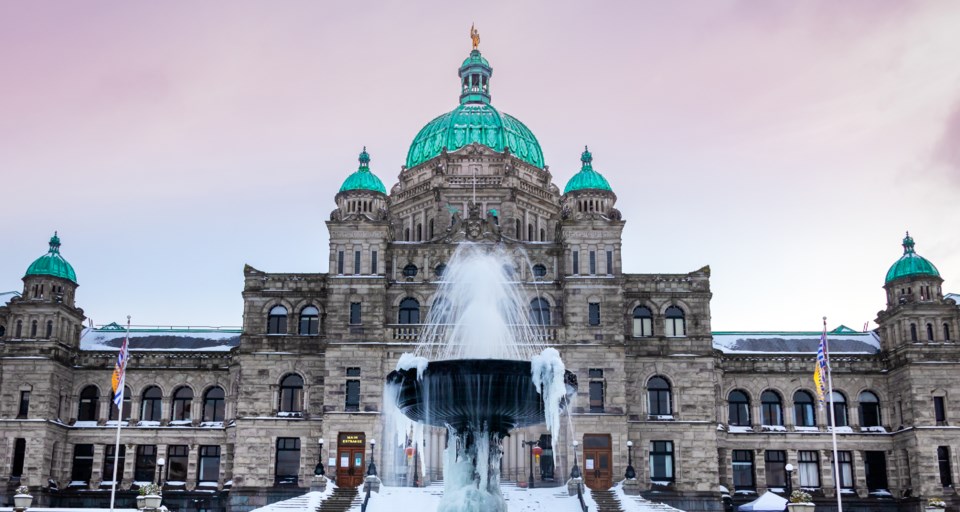What do Premier David Eby’s latest mandate letters for ministers mean for Indigenous peoples?
These letters, all dated Jan. 16, shape the government’s priorities, and this term, they focus on “reconciliation, economic growth, and community well-being.”
The priorities include:
- “Growing the economy by creating good jobs across British Columbia.”
- “Reducing costs for families, including helping people access homes they can afford.”
- “Strengthening health care by expanding access to family doctors and training more health professionals.”
- “Making our neighbourhoods and communities safer by addressing street disorder and cracking down on organized crime.”
- “Taking action on climate change to ensure a healthy and prosperous future for B.C.”
What this means
Supporting Local Growth
Minister of State for Local Governments and Rural Communities Brittny Anderson has been directed to "work with rural and remote communities, regional districts, municipalities, and First Nations to identify the unique needs and opportunities these smaller communities need to grow and thrive."
Food Security and Economic Opportunities
Minister of Agriculture and Food Lana Popham has been tasked to "work with Indigenous communities to identify opportunities for expansion of food security initiatives as well as economic development opportunities for rural and remote Indigenous communities."
Justice and Safety
Attorney General and Deputy Premier Niki Sharma has been instructed to "work with Indigenous communities and leadership consistent with the B.C. First Nations Justice Strategy and Métis Justice Strategy to reduce Indigenous over-representation in the justice system and promote safety and security in Indigenous communities across the province."
Child Welfare and Family Services
Minister of Children and Family Development Jodie Wickens has been tasked to "continue to implement B.C.’s historic legislation honouring Indigenous jurisdiction over the care of children and families and continue to address and reduce the over-representation of Indigenous children in government care."
In the 2020/21 fiscal year, although Indigenous children comprised approximately 6% of the child population, they accounted for 68% of all children in foster care, according to the Ministry’s 2020/21 Annual Service Plan Report.
Education and Child Care
Minister of Education and Child Care Lisa Beare will "continue work to increase Indigenous graduation rates" and "work with Indigenous peoples and the federal government to advance jurisdiction over child care for Indigenous peoples."
In the Sea to Sky School District (SD48), Indigenous student graduation rates have seen significant improvements.
In the 2009-10 academic year, the graduation rate for Indigenous students was 39%.
For the 2023-2024 year, the rate was 81%, which is lower than the 2017-2018, which was 95%.
Infrastructure and Energy Development
Minister of Energy and Climate Solutions Adrian Dix will "work with B.C. Hydro, First Nations, and the renewable power industry through frequent competitive calls for power to increase and diversify B.C.’s generation of electricity."
Though not specific to Squamish, Minister of Transportation and Transit Mike Farnworth has been asked to "lead work to advance progress on the Broadway extension to UBC, including by working with the federal government, UBC, the City of Vancouver, First Nations, and all relevant government agency stakeholders."
Land and Resource Management
Minister of Forests Ravi Parmar has been directed to "bring together industry, First Nations, and communities through forest landscape planning tables—to chart a path forward for the stewardship of B.C.'s forests and forest industry."
Forestry holds profound cultural, spiritual, and economic significance for the Sḵwx̱wú7mesh Úxwumixw (Squamish Nation). According to the Squamish Nation Sacred Land Use Plan (2023), the forests, known as Stséḵtseḵ, have been integral to the Squamish people's way of life for thousands of years, providing materials for shelter, transportation, tools, and medicine.
Randene Neill, Minister of Water, Land, and Resource Stewardship, will "work collaboratively to protect critical ecosystems alongside First Nations, communities, workers, industry, organizations, and the public in a way that upholds rights and title claims, and contributes to long-term, inclusive economic growth that benefits all British Columbians."
Health and Mental Well-Being
Josie Osborne, Minister of Health, has been asked to "work with Indigenous communities and leadership to improve health outcomes for Indigenous peoples in our province."
Reconciliation and Indigenous Relations
Christine Boyle, Minister of Indigenous Relations and Reconciliation, will:
- "Build partnerships that advance reconciliation in measurable ways and create tangible benefits for First Nations and all British Columbians."
- "Ensure that at the end of four years, people living in Indigenous communities in the province have seen an improvement in their quality of life through our government’s interventions."
- "Work with the Parliamentary Secretary for Anti-Racism Initiatives on anti-Indigenous racism."
- "Continue to develop and implement approaches to accelerate agreed-upon land transfers that enhance First Nation community and economic development."
Mining and Resource Development
Minister of Mining and Critical Minerals Jagrup Brar has been tasked to "work with industry, First Nations, and across ministries to establish fixed timelines for mining approval permits across British Columbia" and "update the Mineral Tenure Act in a manner that engages directly with and is respectful of First Nations rights and interests."
Tourism and Cultural Development
Spencer Chandra Herbert, Minister of Tourism, Arts, Culture, and Sport, will "continue to support rural and Indigenous tourism opportunities."
Higher Education and Future Skills
Anne Kang, Minister of Post-Secondary Education and Future Skills, has been directed to "continue work with Indigenous partners to ensure that Indigenous learners can achieve their higher educational goals in ways that reflect a diversity of Indigenous cultures and values."
Some ministries such as Citizens' Services, Finance, Jobs, Economic Development and Innovation, and Public Safety do not mention specific Indigenous-related initiatives, though all the letters include this paragraph:
“Underlying all this work is our partnership with Indigenous peoples. Advancing reconciliation, implementing the Declaration on the Rights of Indigenous Peoples Act and working in partnership with First Nations rights-holders to advance shared interests is the responsibility of every minister.”
Bhagyashree Chatterjee is The Squamish Chief's Indigenous and civic affairs reporter. This reporting beat is made possible by the Local Journalism Initiative.




